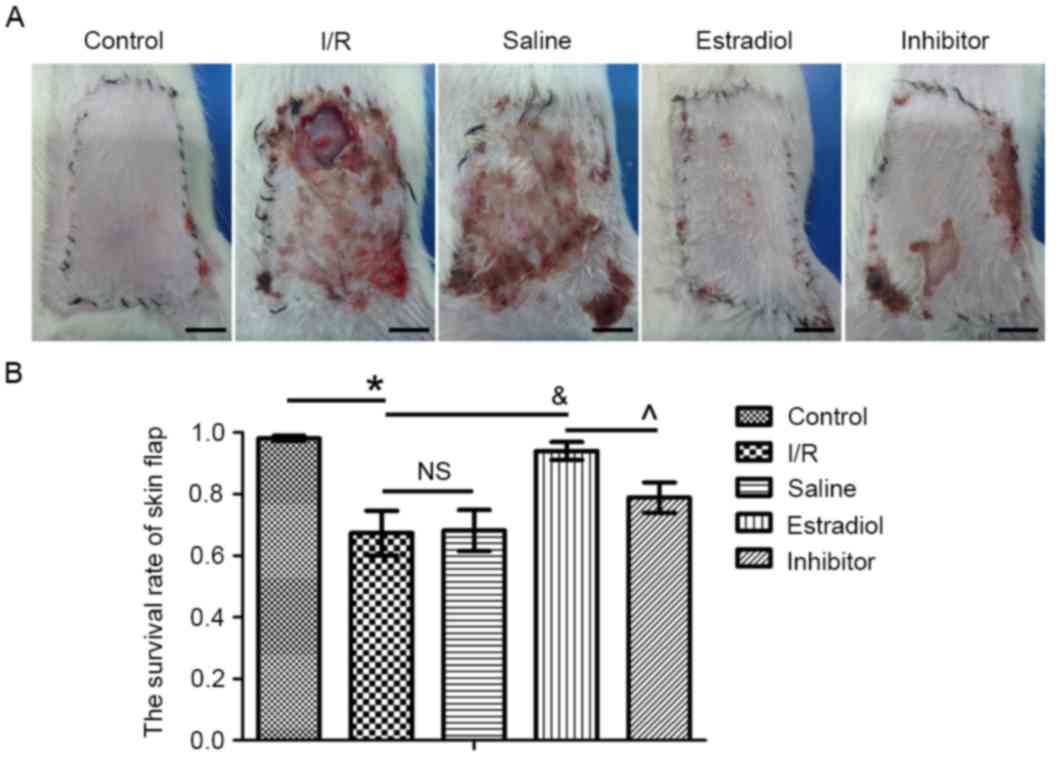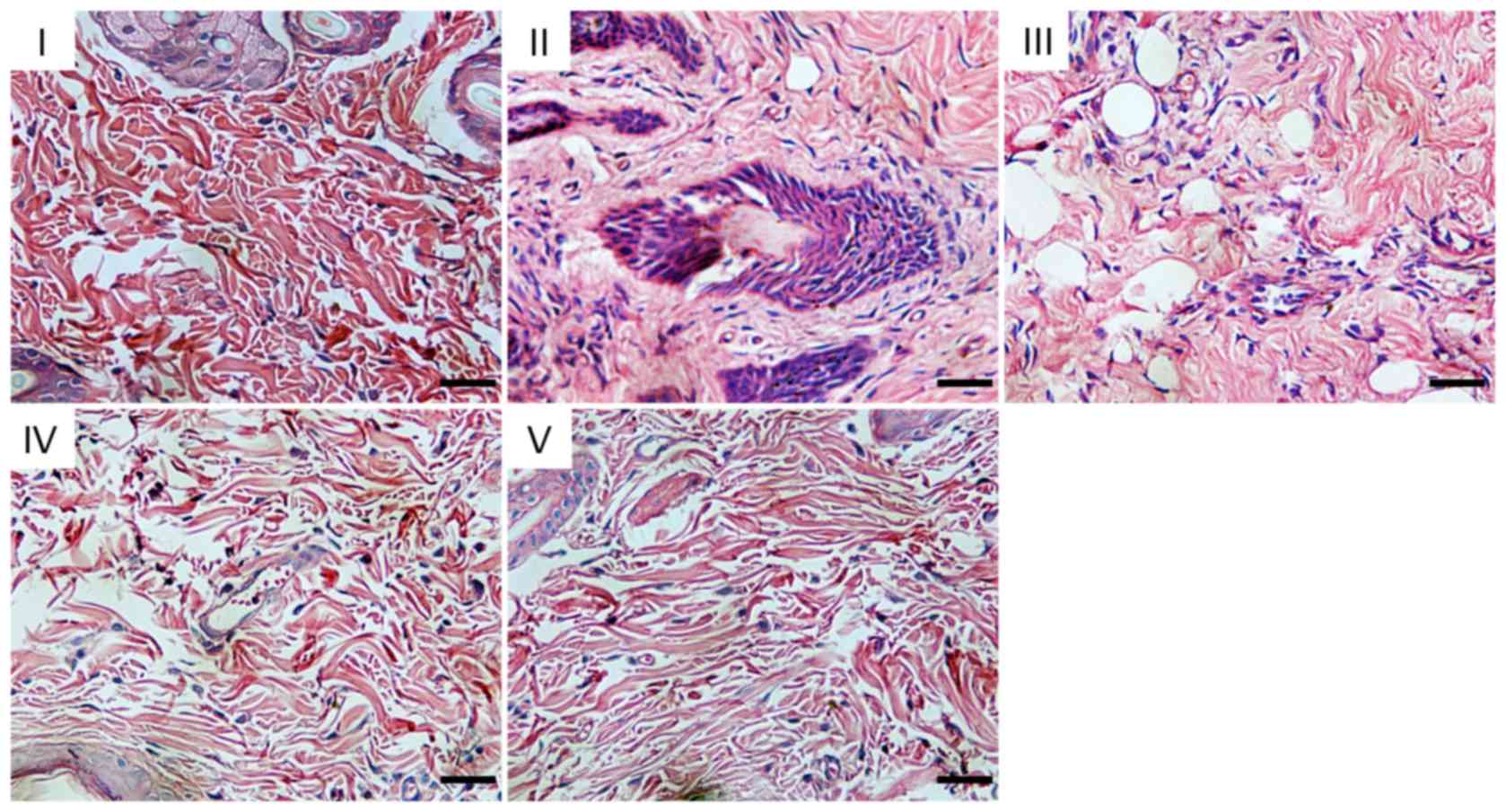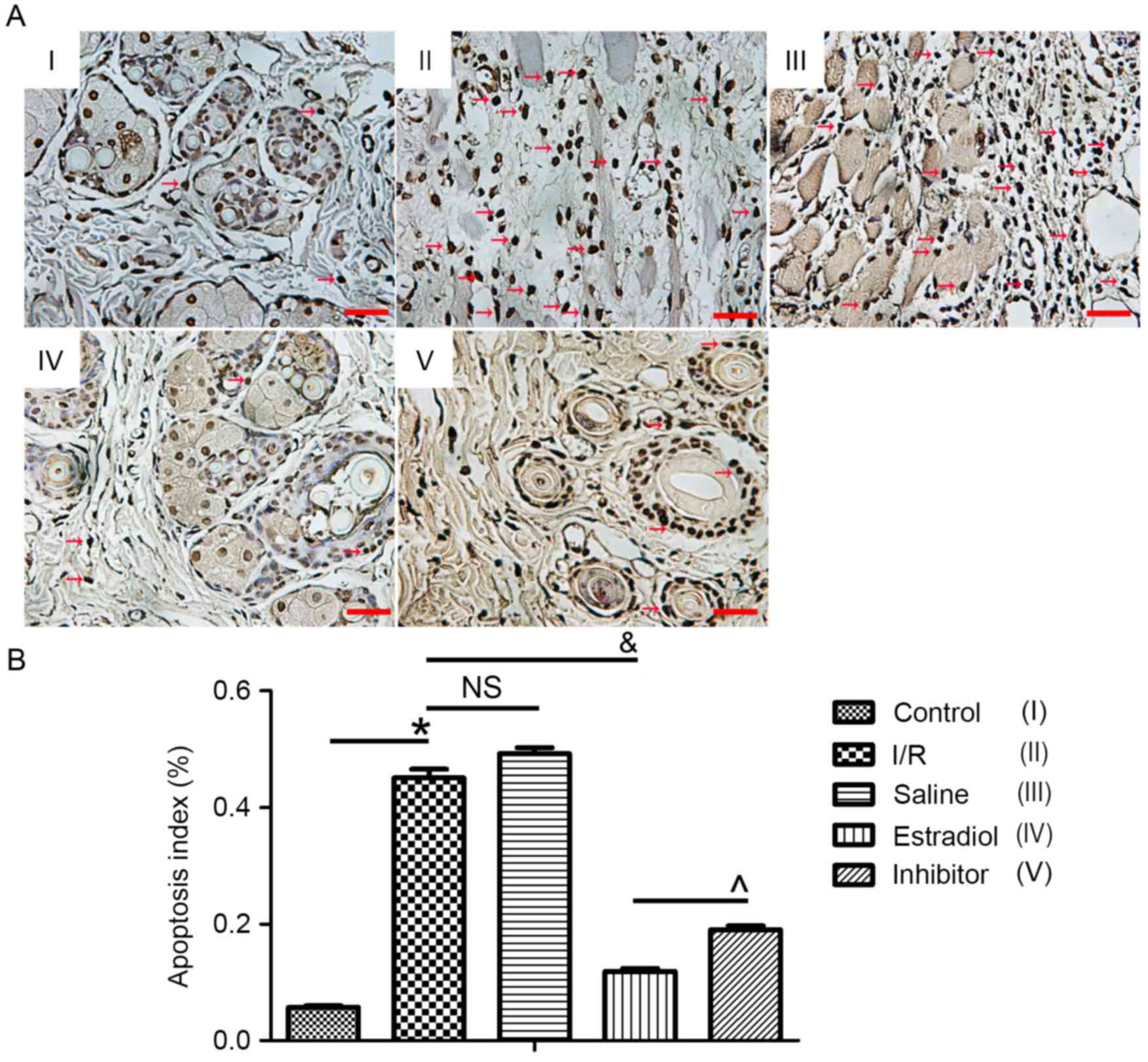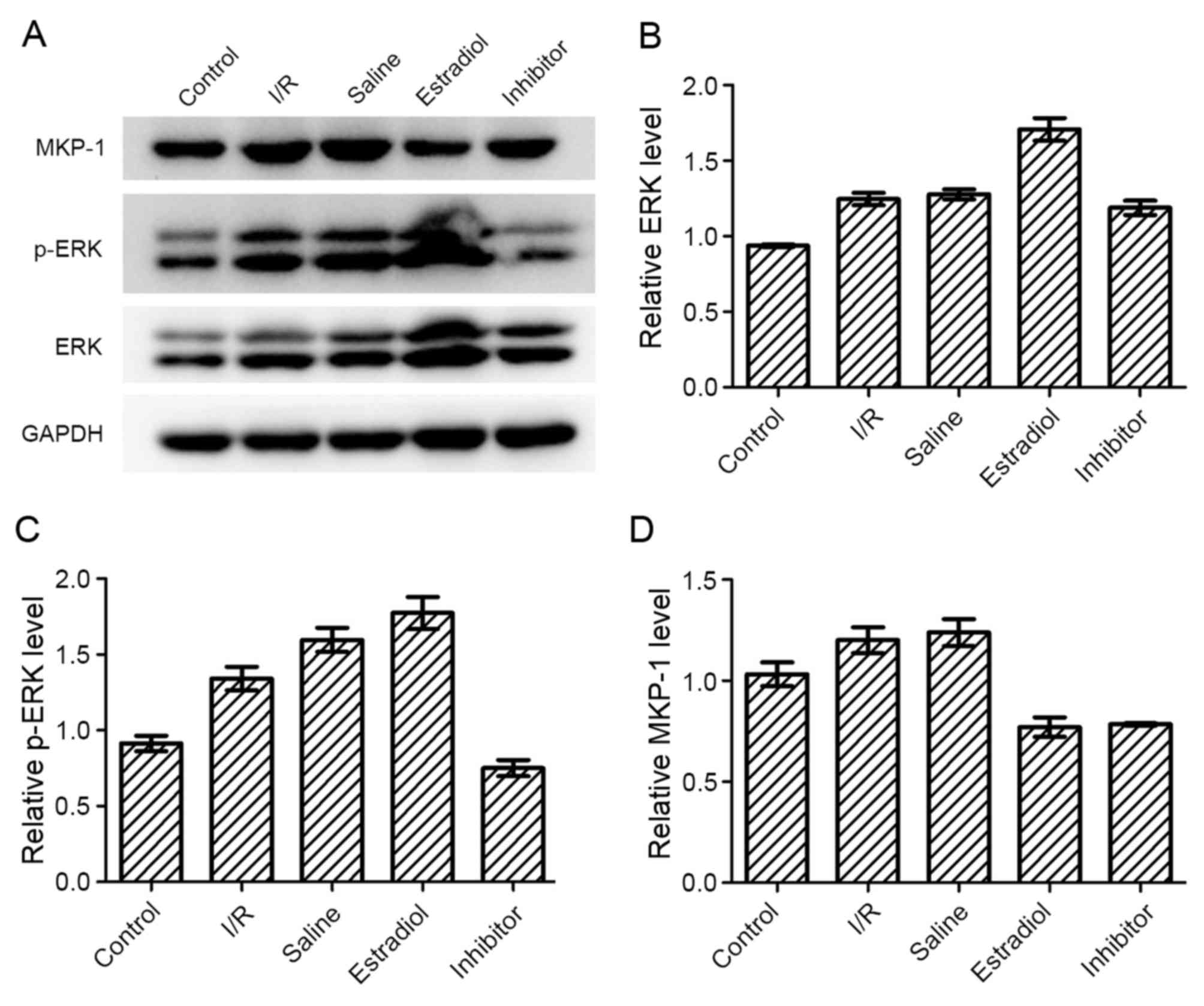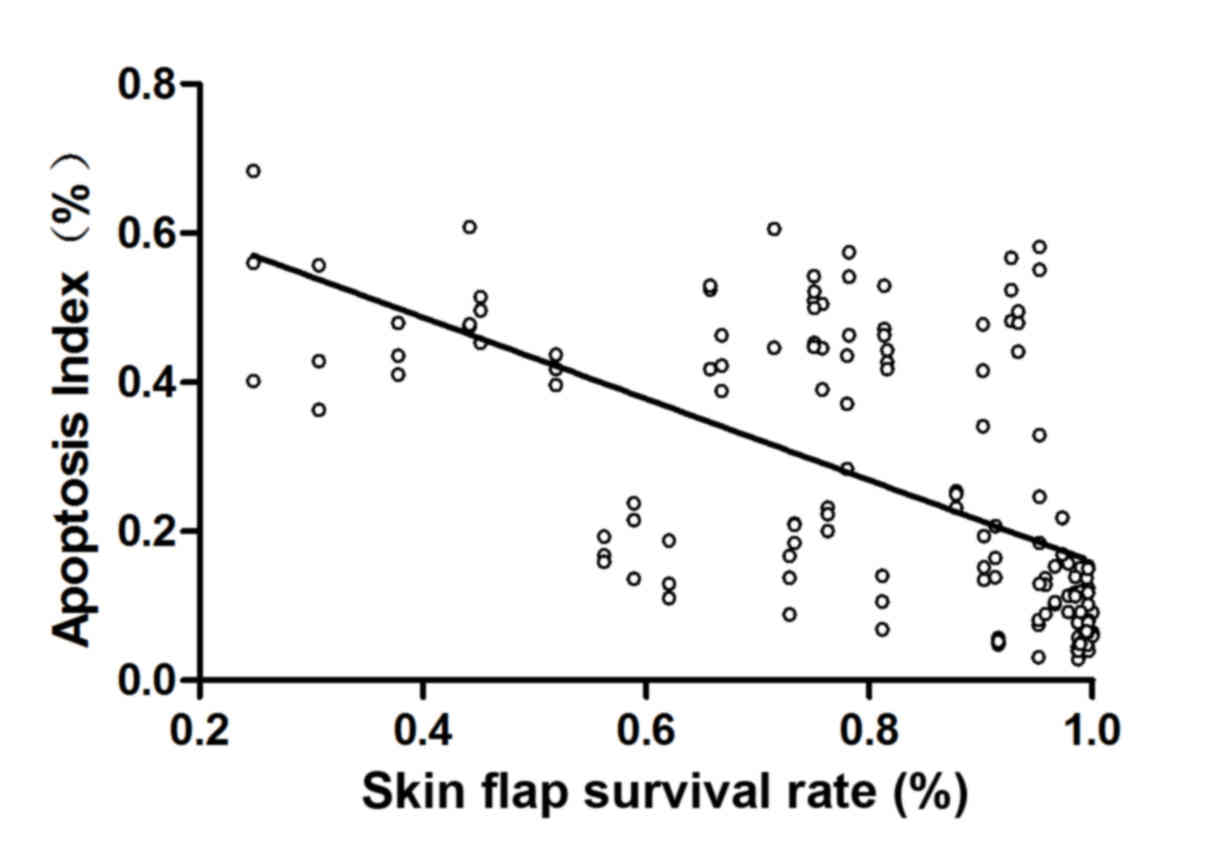|
1
|
Rand-Luby L, Pommier RF, Williams ST,
Woltering EA, Small KA and Fletcher WS: Improved outcome of
surgical flaps treated with topical dimethylsulfoxide. Ann Surg.
224:583–590. 1996. View Article : Google Scholar : PubMed/NCBI
|
|
2
|
Ozmen S, Ayhan S, Demir Y, Siemionow M and
Atabay K: Impact of gradual blood flow increase on
ischaemia-reperfusion injury in the rat cremaster microcirculation
model. J Plast Reconstr Aesthet Surg. 61:939–948. 2008. View Article : Google Scholar : PubMed/NCBI
|
|
3
|
Cetin C, Kse AA, Aral E, Colak O, Erçel C,
Karabağli Y, Alataş O and Eker A: Protective effect of fucoidin (a
neutrophil rolling inhibitor) on ischemia reperfusion injury:
Experimental study in rat epigastric island flaps. Ann Plast Surg.
47:540–546. 2001. View Article : Google Scholar : PubMed/NCBI
|
|
4
|
Molski M, Groth A, Allison AC, Hendrickson
M and Siemionow M: Diannexin treatment decreases
ischemia-reperfusion injury at the endothelial cell level of the
microvascular bed in muscle flaps. Ann Plast Surg. 63:564–571.
2009. View Article : Google Scholar : PubMed/NCBI
|
|
5
|
Hu X, Xu W and Jiang H: HMGB1/IL-17A axis:
An important mechanism for myocardial ischemia-reperfusion injury.
Int J Cardiol. 174:447–448. 2014. View Article : Google Scholar : PubMed/NCBI
|
|
6
|
Shen B, Zhou S, He Y, Zhao H, Mei M and Wu
X: Revealing the underlying mechanism of ischemia reperfusion
injury using bioinformatics approach. Kidney Blood Press Res.
38:99–108. 2013. View Article : Google Scholar : PubMed/NCBI
|
|
7
|
Burns AT, Davies DR, McLaren AJ, Cerundolo
L, Morris PJ and Fuggle SV: Apoptosis in ischemia/reperfusion
injury of human renal allografts. Transplantation. 66:872–876.
1998. View Article : Google Scholar : PubMed/NCBI
|
|
8
|
Rossing L, Haendeler J, Mallat Z, Hugel B,
Freyssinet JM, Tedgui A, Dimmeler S and Zeiher AM: Congestive heart
failure induces endothelial cell apoptosis: Protective role of
carvedilol Journal. Am Coll Cardiol. 36:2081–2089. 2003. View Article : Google Scholar
|
|
9
|
Messmer UK, Briner VA and Pfeilschifter J:
Basic fibroblast growth factor selectively enhance TNF-alpha
induced apoptotic cell death in glomerular endothelial cells:
Effects on apoptotic signaling pathways. J Am Soc Nephrol.
11:2199–2211. 2000.PubMed/NCBI
|
|
10
|
Chong H, Vikis HG and Guan KL: Mechanisms
of regulating the Raf kinase family. Cell Signal. 15:463–469. 2003.
View Article : Google Scholar : PubMed/NCBI
|
|
11
|
Mercer KE and Pritchard CA: Raf proteins
and cancer: B-Raf is identified as a mutational target. Biochim
Biophys Acta. 1653:25–40. 2003.PubMed/NCBI
|
|
12
|
Abe J, Baines CP and Berk BC: Role of
mitogen-activated protein kinases in ischemia and reperfusion
injury: The good and the bad. Circ Res. 86:607–609. 2000.
View Article : Google Scholar : PubMed/NCBI
|
|
13
|
Darling CE, Jiang R, Maynard M, Whittaker
P, Vinten-Johansen J and Przyklenk K: Postconditioning via
stuttering reperfusion limits myocardial infarct size in rabbit
hearts: Role of ERK1/2. Am J Physiol Heart Circ Physiol.
289:1618–1626. 2005. View Article : Google Scholar
|
|
14
|
Jung JY, Yoo CI, Kim HT, Kwon CH, Park JY
and Kim YK: Role of mitogen-activated protein kinase (MAPK) in
troglitazone-induced osteoblastic cell death. Toxicology.
234:73–82. 2007. View Article : Google Scholar : PubMed/NCBI
|
|
15
|
Nunes-Xavier C, Romá-Mateo C, Ríos P,
Tárrega C, Cejudo-Marín R, Tabernero L and Pulido R:
Dual-specificity MAP kinase phosphatases as targets of cancer
treatment. Anticancer Agents Med Chem. 11:109–132. 2011. View Article : Google Scholar : PubMed/NCBI
|
|
16
|
Diederich RS, Mowlavi A, Meldrum G,
Medling B, Bueno RA and Neumeister MW: Local cooling provides
muscle flaps protection from ischemia-reperfusion injury in the
event of venous occlusion during the early reperfusion period. Hand
(N Y). 4:19–23. 2009. View Article : Google Scholar : PubMed/NCBI
|
|
17
|
Chen Z, Yuhanna IS, Galcheva-Gargova Z,
Karas RH, Mendelsohn ME and Shaul PW: Estrogen receptor alpha
mediates the nongenomic activation of endothelial nitric oxide
synthase by estrogen. J Clin Invest. 102:401–406. 1999. View Article : Google Scholar
|
|
18
|
Manson GF, Anthenelli RM, Im MJ, Bulkley
GB and Hoopes JE: The role of oxygen-free radicals in ischemia
tissue injury in island skin flaps. Ann Surg. 198:87–90. 1983.
View Article : Google Scholar : PubMed/NCBI
|
|
19
|
Zingarelli B: Ischemia-reperfusion
injuryWheeler DS, Wong HR and Shanley TP: Science and Practice of
Pediatric Critical Care Medicine. London: Springer-Verlag; pp.
181–192. 2009
|
|
20
|
Harder Y, Amon M, Laschke MW, Schramm R,
Rücker M, Wettstein R, Bastiaanse J, Frick A, Machens HG, Küntscher
M, et al: An old dream revitalised: Preconditioning strategies to
protect surgical flaps from critical ischaemia and
ischaemia-reperfusion injury. J Plast Reconstr Aesthet Surg.
61:503–511. 2008. View Article : Google Scholar : PubMed/NCBI
|
|
21
|
Montalvo-Jave EE, Escalante-Tattersfield
T, Ortega-Salgado JA, Piña E and Geller DA: Factors in the
pathophysiology of the liver ischemia-reperfusion injury. J Surg
Res. 147:153–159. 2008. View Article : Google Scholar : PubMed/NCBI
|
|
22
|
Xu HL, Baughman VL and Pelligrino DA:
Estrogen replacement treatment in diabetic ovariectomized female
rats potentiates poetischemic leukocyte adhesion in cerebral
venules. Stroke. 35:1974–1978. 2004. View Article : Google Scholar : PubMed/NCBI
|
|
23
|
Carswell HV, Dominiczak AF and Macrae IM:
Estrogen status affects sensitivity to focal cerebral ischemia in
stroke-prone spontaneously hypertensive rats. Am J Physiol Heart
Cire Physiol. 278:290–294. 2000.
|
|
24
|
Shen SQ, Zhang Y and Xiong CL: The
protective effects of 17beta-estradiol on hepatic
ischemia-reperfusion injury in rat model, associated with
regulation of heat-shock protein expression. J Surg Res. 140:67–76.
2007. View Article : Google Scholar : PubMed/NCBI
|
|
25
|
Shafighi M, Fathi AR, Brun C, Huemer GM,
Wirth R, Hunger R, Banic A and Constantinescu MA: Topical
application of 17β-estradiol (E2) improves skin flap survival
through activation of endothelial nitric oxide synthase in rats.
Wound Repair Regen. 20:740–747. 2012. View Article : Google Scholar : PubMed/NCBI
|
|
26
|
Jia D, Han B, Yang S and Zhao J: Anemonin
alleviates nerve injury after cerebral ischemia and reperfusion
(i/r) in rats by improving antioxidant activities and inhibiting
apoptosis pathway. J Mol Neurosci. 53:271–279. 2014. View Article : Google Scholar : PubMed/NCBI
|
|
27
|
Koshinuma S, Miyamae M, Kaneda K, Kotani J
and Figueredo VM: Combination of necroptosis and apoptosis
inhibition enhances cardioprotection against myocardial
ischemia-reperfusion injury. J Anesth. 28:235–241. 2014. View Article : Google Scholar : PubMed/NCBI
|
|
28
|
Tao T, Chen F, Bo L, Xie Q, Yi W, Zou Y,
Hu B, Li J and Deng X: Ginsenoside Rg1 protects mouse liver against
ischemia-reperfusion injury through anti-inflammatory and
anti-apoptosis properties. J Surg Res. 191:231–238. 2014.
View Article : Google Scholar : PubMed/NCBI
|
|
29
|
Scarabelli TM and Gottlieb RA: Functional
and clinical repercussions of myocyte apoptosis in the multifaceted
damage by ischemia/reperfusion injury: Old and new concepts after
10 years of contributions. Cell Death Differ. 11 Suppl 2:S144–S152.
2004. View Article : Google Scholar : PubMed/NCBI
|
|
30
|
Collins P and Webb C: Estrogen hits the
surface. Nat Med. 5:1130–1131. 1999. View
Article : Google Scholar : PubMed/NCBI
|
|
31
|
Bhatt S, Xiao Z, Meng Z and
Katzenellenbogen BS: Phosphorylation by p38 mitogen-activated
protein kinase promotes estrogen receptor a tumor and functional
activity via the SCF (Skp2) proteasomal complex. Mol Cell Biol.
32:1928–1943. 2012. View Article : Google Scholar : PubMed/NCBI
|
|
32
|
Ivanova TV, Ivanov VN and Nadezhdina ES:
Transcription factors NFkappaB and AP-1/c-fos incell response to
nocodazol. Membr Cell Biol. 14:727–741. 2001.PubMed/NCBI
|
|
33
|
Endoh H, Sasaki H, Maruyama K, Takeyama K,
Waga I, Shimizu T, Kato S and Kawashima H: Rapid activation of MAP
kinase by estrogen in the bone cell line. Biochem Biophys Res
Commun. 235:99–102. 1997. View Article : Google Scholar : PubMed/NCBI
|
|
34
|
Guo X, Zhang X, Li Y, Guo Y, Wang J, Li Y,
Shen B, Sun D and Zhang J: Nocodazole increases the ERK activity to
enhance MKP-1 expression which inhibits p38 activation induced by
TNF-α. Mol Cell Biochem. 364:373–380. 2012. View Article : Google Scholar : PubMed/NCBI
|
|
35
|
Serini S, Trombino S, Oliva F, Piccioni E,
Monego G, Resci F, Boninsegna A, Picci N, Ranelletti FO and
Calviello G: Docosahexaenoic acid induces apoptosis in lung cancer
cells by increasing MKP-1 and down-regulating p-ERK1/2 and p-p38
expression. Apoptosis. 13:1172–1183. 2008. View Article : Google Scholar : PubMed/NCBI
|















